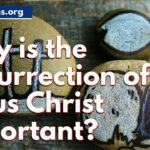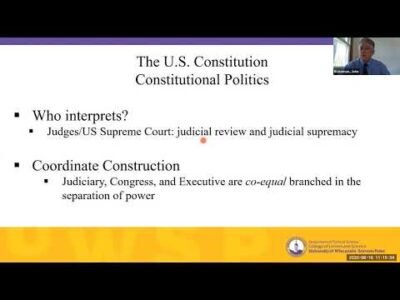Two thousand years ago, the angel Gabriel brought a rather unusual message to a little girl named Mary: Behold, the Holy Spirit will come upon you and you will conceive a child, even though you have had no relations with a man. Proving, as they say, that abstinence is 99.9999999 percent effective.
The belief Mary gave birth to Jesus as a virgin is not, nor has it ever been, a controversial topic in Christendom. It fulfills a prophecy found in the book of Isaiah, and Christians accepted it from the very beginning. The idea that she REMAINED a virgin, however… now that is up for debate.
Why do Catholics argue for her perpetual virginity and when did this belief develop? This is Catholicism in Focus. As with most things in our faith, the first place we want to look to answer our question is the Bible itself. Although not the ONLY source of God’s truth, it is a pretty important foundation.
Which… is unfortunate for Catholics in this case… as the Bible isn’t much help. The best we can say about the perpetual nature of Mary’s virginity, based on the Bible, is that the Bible doesn’t say much. It definitively speaks of her virginity in conceiving of Jesus, and then remains silent
On any other domestic events in Mary’s life. Scripture doesn’t definitively negate the idea. It does, however, offer some contrary evidence, as Protestants like to point out. In each of the synoptic Gospels, there is a pericope in which Jesus, speaking to the
Crowds, is informed, “Your mother and your brothers are standing outside and they wish to see you.” Jesus of course spiritualizes the situation, saying that those who do the will of his father are his mother and brothers and sisters, and that’s great for us as a moral lesson, but
It does present a practical problem for take on Mary: clearly, the disciple didn’t mean this spiritually, but literally. He was speaking of Jesus’ actual flesh and blood. The same can be seen in the Gospel of John, the Acts of the Apostles, and St. Paul’s
First letter to the Corinthians and to the Galatians, as each reference the brothers of Jesus. Clearly, Jesus had some biological relatives, and the Catholic Church doesn’t negate that. We just don’t accept that these children are the offspring of Mary.
When we look to the actual description of these so called “brothers” of Jesus, it’s important to note that no one is ever described as “the son of Mary.” Whereas family lineage is common in other places in the Gospels, as in the sons of Zebedee, these brothers are given no further detail.
Of course, this assumes that the word “brother” actually means what we mean, which is not a guarantee. In the semitic world, calling someone a “brother” could be a catch-all for many types of relationships from step-brother to cousin even to uncle.
In the Book of Genesis, for example, Abraham uses the Hebrew word for “brother” to greet Lot, even though he is in fact his uncle. As if that weren’t ambiguous enough, we see in the Gospel of Matthew that two of his
Disciples, James and Joseph, are at one point referred to as his brothers, but are later described as the sons of a different Mary entirely. All of this helps to understand the scene from John 19 in which Jesus entrusts his mother to the Beloved disciple while on the cross.
If the Mary, the Mother of Jesus, did have other children, Jesus would have had no need to make sure that his mother was cared for after his death, and this scene would make little sense. For many in the early Church, passages referring to Jesus’ siblings posed no problem to the
Belief in the perpetual virginity of Mary because many understood them to be children of Joseph before he betrothed Mary, or, in all likelihood, children from another marriage. Given the world at the time, there is no reason to believe that Joseph couldn’t have had other wives and a much larger family.
In fact, an early Christian source says just that. In the Protoevangelium of James, a partial Gospel written around 120 AD, we read Now, is this a canonical source, binding on all the faithful? Of course not.
It was not deemed authentic enough to be included in the Bible and so we must be wary of taking any of its words as dogmatic truth. What it is, though, is early evidence of a developing popular belief: if it was important
Enough to be written down in the early second century, it means that there was already a strong oral tradition and popular devotion among the people a generation earlier. Over the next two centuries, the belief in the perpetual virginity of Mary took root
Throughout all of Christendom, developing a strong devotional following in both East and West. Some like Tertullian and Helvidius argued against it, but the vast majority of Church leaders, people like Origen, Athanasius, Basil the Great, Ambrose, Cyril of Alexandria, Pope Leo, Jerome, and Augustine, all defended it.
And trust me—if you can get Jerome and Augustine to be on the same side of something, that’s saying something. They … did not exactly get along. Eventually, the teaching was so well-established among the leaders of the Church with dissenting opinions only coming from minority, heretical voices, that the Second Council of Constantine
In 553 definitively referred to Mary as “ever-virgin” and the Lateran Council of 649 further cemented the teaching’s place in Catholic theology: Clearly, this teaching was well rooted in the ancient Church. But it also persisted. What’s probably most interesting about this topic is not that the belief has existed basically
Since the beginning, it’s that it continued unchallenged even through the beginning of the Protestant Reformation. While many Protestants today do not accept this teaching, all of the major reformers did. Martin Luther, sermons on John. Ulrich Zwingli, Corpus Reformatorum. John Wesley, Letter to a Roman Catholic.
Calvin didn’t even think it was a controversial question: In one commentary, he wrote, Unfortunately, many people do raise this question today, and I guess you can understand why. Scripture does not explicitly state that Mary remained a virgin. If you are a biblical literalist and sola-scriptura rigorist, that’s the ballgame.
But really, that’s precisely why scripture can’t be the only source of truth. It’s why we believe that Christ founded the Church, that the Holy Spirit continues to guide it, so that when questions like this arise a generation after the Gospels were
Written, and the faithful maintain that same belief even through the Reformation, we can know of it’s truth. It may not be spelled out in the Bible, but when Basil, Augustine, Jerome, Aquinas, Luther, Calvin, Zwingli and Wesley can all agree on something… there might be something to it.
#Mary #REMAIN #Virgin







No comment yet, add your voice below!